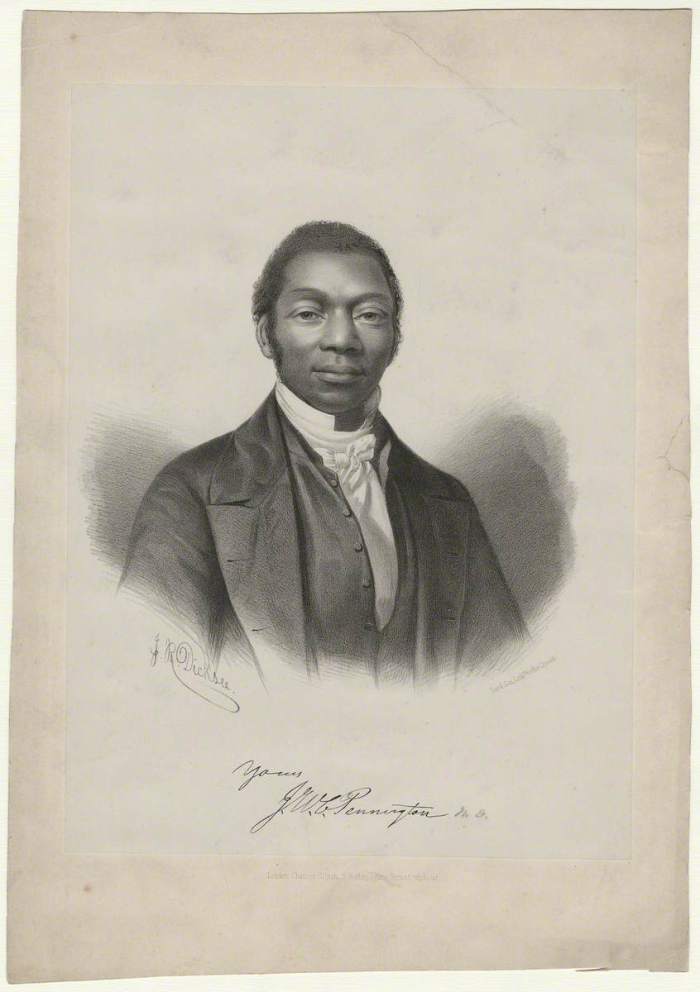
James W.C. Pennington (1807-1870) was an African American orator, writer, and minister who gained recognition for his abolitionist efforts in Europe, becoming the first black man to receive an honorary doctorate from Heidelberg University. Pennington is known for writing what is considered the first history of African Americans, The History and Origin of the Colored People (1841), and also published a memoir, The Fugitive Blacksmith (1849), where he describes his escape from slavery and journey to becoming an educated minister. After his escape, Pennington sought refuge from a Quaker family who gave him a formal education and, although Yale University would not officially enroll Pennington as a student, he nonetheless became the first black man to attend classes at its School of Divinity. After studying theology for four years, he was ordained as minister of the Presbyterian Church.
Motivated by his evangelical practices, Pennington denounced slavery as a sin, but also argued against the act of insurrection. He promoted, instead, the obligation of free blacks to seize any available opportunity to improve themselves both morally and intellectually, arguing that this would be the best way to disrupt the stereotypes of black inferiority upon which slavery itself was based. Pennington was well aware that abolition could be brought into alignment with other emancipatory agendas, and quickly accepted invitations to serve as a delegate to a series of international reform conventions in London, Paris, Frankfurt, and Brussels. It was at the 1849 World Peace Congress in Paris where Pennington would befriend German scholar and president of the congress, Friedrich Carové.
Despite the laws passed against slavery and participation in the slave trade in many European countries at that time, the United States was as firmly enmeshed in the slavery system as ever before. When the Fugitive Slave Law was passed in 1850, Pennington decided to remain in Europe and continue his abolitionist efforts there rather than return home. During this period, Friedrich Carové successfully petitioned the theological faculty in Heidelberg to officially recognize Pennington’s intellectual accomplishments. In 1849, he was awarded an honorary doctorate of divinity from Heidelberg University, one of the most prestigious institutions in Europe.
Encouraged by this recognition, Pennington would attend the 1850 Frankfurt Peace Congress where he presided over an antislavery meeting, served on multiple committees, and socialized with like-minded European reformers. He did not return to the United States until his supporters bought his freedom in 1852 to ensure his safe return.
– Marie Tweedie (University of Missouri)